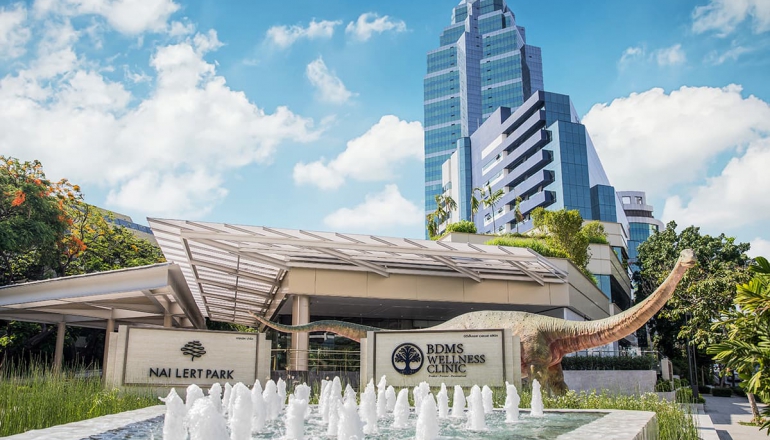
The World Health Organisation (WHO) has warned that climate change potentially poses the greatest threat to human health in the 21st century. When we look at respiratory health, we see that rising temperatures, poor air quality, and extreme weather events are driving an increase in respiratory diseases and worsening conditions like chronic obstructive pulmonary disease (COPD) and asthma.
The importance of evidence driven decision making
There is however still lack of clinical evidence on which specific climate change factors, such as air pollution particulate matters, are affecting patients based on their sensitivity and capacity to adapt. By leveraging data, we can better address these questions, factor in social determinants of health, and manage the healthcare workforce. Data also supports decision-makers in crafting informed policies to achieve sustainability goals. Artificial intelligence (AI) takes this further by uncovering insights, detecting patterns, and predicting outcomes with accuracy. This makes it a powerful tool for governments, industries, patients, and healthcare professionals, enabling evidence-driven decisions to decarbonize healthcare without compromising on patient care.
The importance of taking decisive action in decarbonizing HCS
Healthcare systems are part of the problem, accounting for more than 4% of global CO2 emissions1. This must change. And, as our sector works to reduce our emissions and create innovative solutions that minimize environmental impact, we must ensure that patients and the most vulnerable in our communities are at the centre of the discussion and efforts.
At Chiesi we want to ensure our approach combats both the root causes of climate change and reduces greenhouse gas emissions, whilst also implementing governance systems for climate change adaptation2. Our robust decarbonization strategy is designed with data, and the 1.5°C warming limit by 2100, in mind. The Science Based Targets initiative (SBTi) has officially validated our near- and long-term emissions reduction targets, confirming our ambitious goal of reaching net-zero emissions by 20353. In parallel to these efforts, we are committed to ensuring that patients and the most vulnerable in our communities are at the centre of these changes we are making.
Investing for a healthier, more sustainable future
Working towards a net zero society naturally comes with strong commitments. Sustainability requires investments and research, from industry, academia and political stakeholders. Estimations of the investments needed to boost the EU’s capacity to manufacture net-zero technologies amount to around 92bn euros from 2023 until 20304. To achieve that ambitious goal, everyone will have to weigh in.
At Chiesi, we are dedicated to doing our part. We innovate to both improve medicines and clinical outcomes. In 2023, 24% of our expenses were devoted to research and development (R&D)5 as we believe that innovation can increase the wellbeing and health of patients, the planet, and our communities.
The cornerstone of our sustainable innovation is the carbon minimal inhaler platform6, our flagship effort to minimize the environmental footprint of our inhaler platform whilst ensuring access to essential treatments for asthma and COPD. Back in 2019 we committed to an investment of our project to develop it. This innovation will reduce the carbon footprint of our inhalers by up to 90% and is a key part of our journey to becoming a Net Zero company by 2035. We’re now on the home stretch as our main phase III trials have completed recruitment and we work towards completion and initial submission to regulators. Right on track to support a seamless transition while minimising climate impact.
Action Over Words: Building a Healthier Planet Through Sustainable Healthcare
We want to play our part in ensuring everyone can make informed decisions, by raising awareness about how climate change impacts health, particularly respiratory health. With this goal in mind, we’ve relaunched Action Over Words, an interactive platform that dives into the connection between health and climate.
The Action Over Words site showcases the innovative solutions Chiesi is driving to reduce our carbon footprint and minimize the environmental impact of healthcare. But we can’t do it alone. Building a healthier planet demands collective action and bold ideas.
Policies aimed at reducing carbon emissions, such as restricting materials with a high carbon footprint, must consider the vital role of respiratory healthcare. Blanket bans or restrictive quotas should never compromise access to critical treatments. Leveraging data, correctly assessing the impact of policies on patients and access and acting based on the outcomes of this evidence is essential. As the healthcare sector embraces sustainability, we must ensure that it is done without jeopardizing patient care.
Stay tuned to Action Over Words and join the conversation as we work together towards a more sustainable future. Let’s connect, collaborate, and make a difference.
link






